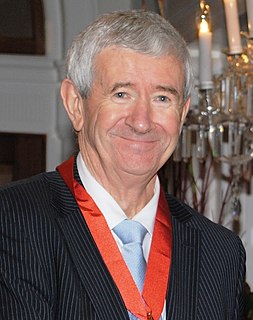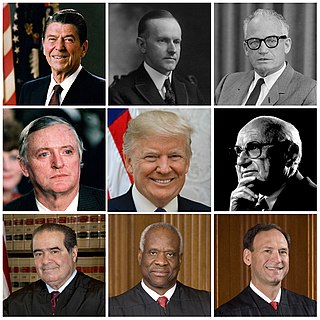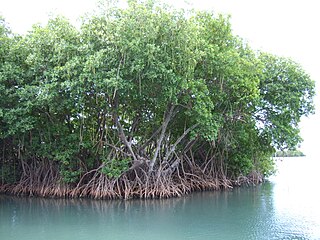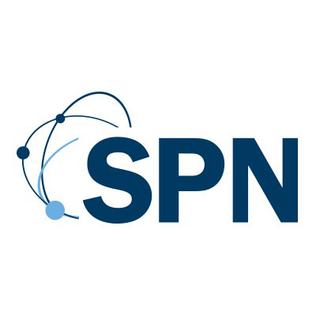Related Research Articles

The Cato Institute is an American libertarian think tank headquartered in Washington, D.C. It was founded as the Charles Koch Foundation in 1974 by Ed Crane, Murray Rothbard, and Charles Koch, chairman of the board and chief executive officer of the conglomerate Koch Industries. In July 1976, the name was changed to the Cato Institute. Cato was established to have a focus on public advocacy, media exposure and societal influence. According to the 2017 Global Go To Think Tank Index Report, Cato is number 15 in the "Top Think Tanks Worldwide" and number 10 in the "Top Think Tanks in the United States".

Territorial authorities are the second tier of local government in New Zealand, below regional councils. There are 67 territorial authorities: 13 city councils, 53 district councils and the Chatham Islands Council. District councils serve a combination of rural and urban communities, while city councils administer the larger urban areas. Five territorial authorities also perform the functions of a regional council and thus are unitary authorities. The Chatham Islands Council is a sui generis territorial authority that is similar to a unitary authority.
The Koch family foundations are a group of charitable foundations in the United States associated with the family of Fred C. Koch. The most prominent of these are the Charles Koch Foundation and the David H. Koch Charitable Foundation, created by Charles Koch and David Koch, two sons of Fred C. Koch who own the majority of Koch Industries, an oil, gas, paper, and chemical conglomerate which is the US's second-largest privately held company. Charles' and David's foundations have provided millions of dollars to a variety of organizations, including libertarian and conservative think tanks. Areas of funding include think tanks, political advocacy, climate change skepticism, higher education scholarships, cancer research, arts, and science.

The Institute for Public Policy Research (IPPR) is a left-wing think tank based in London. It was founded in 1988 and is an independent registered charity. IPPR has offices in Newcastle, Manchester, and Edinburgh. Funding comes from trust and foundation grants, government support, and individual donors.

Sue Bradford is a New Zealand activist, academic, and former New Zealand politician who served as a list Member of Parliament representing the Green Party from 1999 to 2009.

The George C. Marshall Institute (GMI) was a nonprofit conservative think tank in the United States. It was established in 1984 with a focus on science and public policy issues and was initially active mostly in the area of defense policy. Since the late 1980s, the Institute put forward environmental skepticism views, and in particular has promoted fringe views regarding the scientific consensus on climate change. The think tank received extensive financial support from oil companies.

Roger Lawrence Kerr, a public policy and business leader, was the executive director of the New Zealand Business Roundtable, a free-market think-tank based in Wellington, New Zealand.
The New Zealand Initiative is a pro-free-market public-policy think tank and business membership organisation in New Zealand. It was formed in 2012 by merger of the New Zealand Business Roundtable (NZBR) and the New Zealand Institute. The Initiative’s main areas of focus include economic policy, housing, education, local government, welfare, immigration and fisheries.

Manaaki Whenua – Landcare Research is one of New Zealand's Crown Research Institutes. The focus of the research at this company is the environment, biodiversity, and sustainability.
Atlas Network, formerly known as the Atlas Economic Research Foundation, is a nonprofit organization based in the United States. The group aims to promote free-market economic policies across the world. The stated mission of the Atlas Network is "Atlas Network increases global prosperity by strengthening a network of independent partner organizations that promote individual freedom and are committed to identifying and removing barriers to human flourishing." Atlas Network has awarded grants of over $20 million. Atlas Network is not named after Ayn Rand's novel Atlas Shrugged.

The Acton Institute for the Study of Religion and Liberty is an American research and educational institution, or think tank, in Grand Rapids, Michigan, whose stated mission is "to promote a free and virtuous society characterized by individual liberty and sustained by religious principles". Its work supports free market economic policy framed within Judeo-Christian morality. It has been alternately described as conservative and libertarian. Acton Institute also organizes seminars "to educate religious leaders of all denominations, business executives, entrepreneurs, university professors, and academic researchers in economics principles."
The Joint Ocean Commission Initiative is a bipartisan, collaborative group in the United States that aims to "accelerate the pace of change that results in meaningful ocean policy reform." The Joint Initiative was established by the members of two major U.S.-based oceans commissions: the Pew Oceans Commission and the United States Commission on Ocean Policy. It was originally co-chaired by former White House Chief of Staff Leon Panetta and former Chief of Naval Operations Admiral James D. Watkins, chairs of the Pew and U.S. Ocean Commissions, respectively. Currently, the Joint Initiative is led by a Leadership Council, which is co-chaired by Christine Todd Whitman, former EPA Administrator under President George W. Bush and former governor of New Jersey, and Norman Y. Mineta, Secretary of Commerce under President Bill Clinton and Secretary of Transportation under President George W. Bush.

The environment of New Zealand is characterised by an endemic flora and fauna which has evolved in near isolation from the rest of the world. The main islands of New Zealand span two biomes, temperate and subtropical, complicated by large mountainous areas above the tree line. There are also numerous smaller islands which extend into the subantarctic. The prevailing weather systems bring significantly more rain to the west of the country. New Zealand's territorial waters cover a much larger area than its landmass and extend over the continental shelf and abyssal plateau in the South Pacific Ocean, Tasman Sea and Southern ocean.

The McGuinness Institute is a non-partisan think tank based in Wellington, New Zealand, working towards a sustainable future, contributing strategic foresight through evidence-based research and policy analysis. Established in 2004 by Wendy McGuinness, the Institute endeavours to undertake research that is independent, innovative and relevant in a professional manner. Previously the Sustainable Future Institute, the McGuinness Institute changed its name in February 2012.

Mangrove ecosystems represent natural capital capable of producing a wide range of goods and services for coastal environments and communities and society as a whole. Some of these outputs, such as timber, are freely exchanged in formal markets. Value is determined in these markets through exchange and quantified in terms of price.Mangroves are important for aquatic life. Mangroves are home for many species of fish.

The State Policy Network (SPN) is an American nonprofit organization that functions primarily as an umbrella organization for a consortium of conservative and libertarian think tanks that focus on state-level policy. The organization serves as a public policy clearinghouse and advises its member think tanks on fundraising, running a nonprofit, and communicating ideas. Founded in 1992, it is headquartered in Arlington, Virginia, with member groups located in all fifty states.
The political activities of the Koch brothers include the financial and political influence of Charles G. and David H. Koch (1940–2019) on United States politics. This influence is seen both directly and indirectly via various political and public policy organizations that were supported by the Koch brothers.

Charles de Ganahl Koch is an American businessman and philanthropist. As of March 2019, he was ranked as the 11th-richest person in the world, with an estimated net worth of $50.5 billion. Koch has been co-owner, chairman, and chief executive officer of Koch Industries since 1967, while his late brother David Koch served as executive vice president. Charles and David each owned 42% of the conglomerate. The brothers inherited the business from their father, Fred C. Koch, then expanded the business. Originally involved exclusively in oil refining and chemicals, Koch Industries now includes process and pollution control equipment and technologies, polymers and fibers, minerals, fertilizers, commodity trading and services, forest and consumer products, and ranching. The businesses produce a wide variety of well-known brands, such as Stainmaster carpet, the Lycra brand of spandex fiber, Quilted Northern tissue, and Dixie Cup.
Oliver Marc Hartwich is a German economist and media commentator. He is the Executive Director of the think tank The New Zealand Initiative in Wellington and a columnist with the online magazine Newsroom.
Motu Economic and Public Policy Research is an economic and public policy research institute based in Wellington, New Zealand.
References
- 1 2 3 "New Zealand Institute: About Us". New Zealand Institute. Retrieved 4 June 2014.
- 1 2 "Roundtable and NZ Institute morph into new libertarian think tank". Nbr.co.nz. 4 April 2012. Retrieved 3 September 2017.
- ↑ Standing on the shoulders of science: Getting more value from the innovation ecosystem.
- ↑ "Merger yields new think tank, the New Zealand Initiative". Idealog.co.nz. 4 April 2012. Retrieved 3 September 2017.
- ↑ Pattrick Smellie (4 April 2012). "Roundtable and NZ Institute morph into new libertarian think tank". National Business Review.